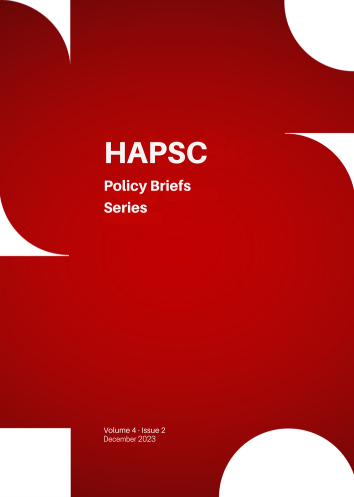Reforming State-Owned Enterprises (SOES) to Facilitate the Economic Recovery of Sri Lanka
Résumé
The economic downturn and escalating debt levels prompted Sri Lanka to seek assistance from the International Monetary Fund (IMF), resulting in the formulation of the 17th IMF program. This program, aimed at fiscal consolidation and restructuring, designates SOEs as a pivotal element in the nation's economic recovery strategy. This policy brief addresses the imperative need for reforming State-Owned Enterprises (SOEs) in Sri Lanka. A historical overview reveals the evolution of Sri Lanka's SOEs, from their establishment during World War II to a surge in numbers in the 1980s. Despite their vital role in the economy, SOEs have faced operational inefficiencies, financial struggles, and governance issues, leading to a privatization policy in 1988. The document explores international experiences in SOE reform, drawing insights from successful models in Singapore, China, and India. Current policy measures in Sri Lanka encompass various reform strategies, such as corporatization, restructuring, and commercialization, focusing on enhancing financial transparency and accountability. The establishment of the State-Owned Enterprise Restructuring Unit (SRU) reflects a commitment to effective implementation, with international support from entities like the International Finance Corporation (IFC). In conclusion, the path to economic recovery in Sri Lanka hinges on the successful transformation of SOEs, ensuring financial viability, transparency, and sustainable growth.
Article Details
- Comment citer
-
Kamburawala, T. U., & Abeyrathne, D. H. (2023). Reforming State-Owned Enterprises (SOES) to Facilitate the Economic Recovery of Sri Lanka. HAPSc Policy Briefs Series, 4(2), 129–137. https://doi.org/10.12681/hapscpbs.36691
- Rubrique
- Articles

Ce travail est disponible sous la licence Creative Commons Attribution 4.0 International .
Authors retain copyright and grant the journal right of first publication with the work simultaneously licensed under a Creative Commons Attribution License that allows others to share the work with an acknowledgement of the work's authorship and initial publication in this journal.


